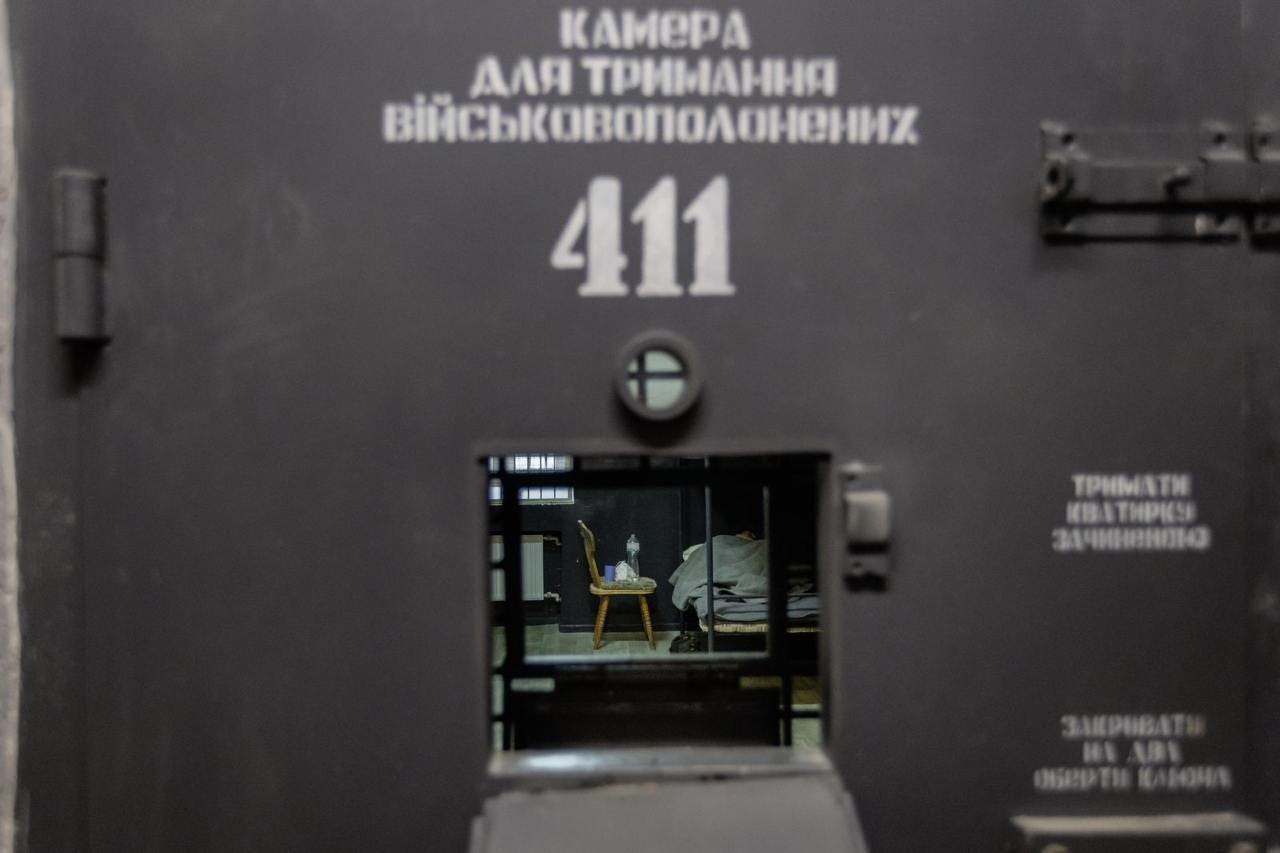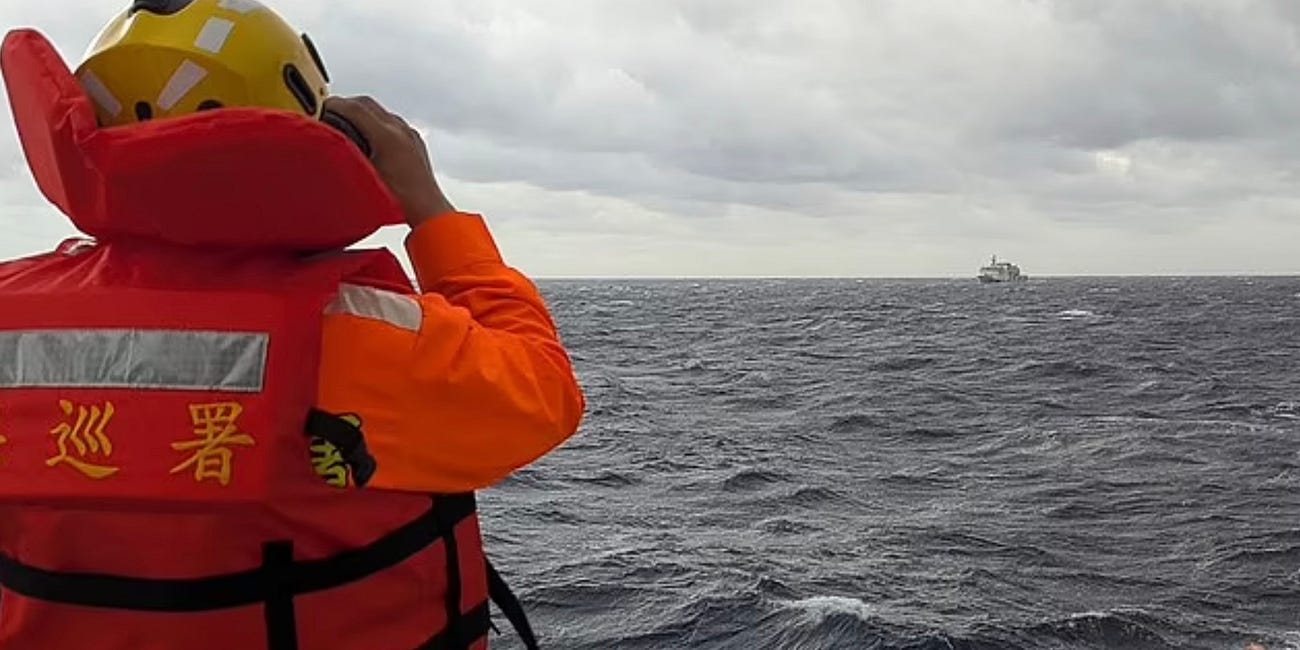
'Irrefutable evidence of North Korea's involvement' — Ukraine says it captured 2 North Korean POWs in Kursk Oblast
Ukrainian troops captured two North Korean soldiers as prisoners of war (POWs) in Russia's Kursk Oblast, President Volodymyr Zelensky said on Jan. 11.
"This task was not easy," he said in a Telegram post.
"Usually, Russia and other North Korean military personnel finish off their wounded and do everything possible to ensure that no evidence of the participation of another state — North Korea — in the war against Ukraine is preserved."
The two wounded soldiers received necessary medical care and are in the custody of the Security Service of Ukraine (SBU) in Kyiv, according to Zelensky. The president applauded Ukrainian paratroopers and soldiers from the Special Operation Forces for capturing the North Koreans.
North Korea deployed around 12,000 soldiers in Kursk Oblast, where Ukraine launched a surprise cross-border incursion in August 2024 to bring the war to Russia, a senior Ukrainian official familiar with the intelligence told the Kyiv Independent in December 2024.
Read More at Kyiv Independent
Drones hit one of Russia's largest oil refineries in Tatarstan – video
Drones are reported to have struck the Taneko oil refinery in Tatarstan, a federal subject of the Russian Federation.
Details: Astra reports that workers at an oil refinery in Nizhnekamsk, Tatarstan, are being evacuated due to the threat of a drone attack.
Local Telegram channels are sharing footage of smoke rising from the Taneko refinery in Tatarstan, with reports indicating that an evacuation is currently underway.
Read More at Ukrainian Pravda
Ukrainian drones reportedly hit industrial site near St. Petersburg in attack on multiple Russian oblasts
LATEST: Ukrainian Neptune missile hits Russian drone warehouse in Rostov Oblast, SBU source claims.
Ukrainian drones attacked several Russian oblasts overnight on Jan. 10, causing severe fires in Leningrad and Rostov oblasts, local authorities and Russian independent media reported.
Russian air defense forces reportedly intercepted 40 Ukrainian drones throughout the night, Russia's Defense Ministry claimed.
According to the ministry, Russian forces destroyed 16 drones over Rostov Oblast, four over Kursk and Voronezh oblasts, three over Bryansk Oblast, two over the Kuban region, one over Belgorod Oblast, and 10 over the Azov Sea.
Read More at Kyiv Independent
U.S. Imposes New Sanctions to Squeeze Russia’s Energy Sector
The Biden administration is cracking down on the Russian “shadow fleet” and taking steps to curb oil and gas production.
The United States on Friday announced new sanctions targeting Russia’s energy sector and its “shadow fleet” of oil tankers in what could be a final attempt by the Biden administration to cripple the Russian economy in response to Moscow’s war in Ukraine.
President Biden has been cautious in his approach to sanctions on Russia’s energy sector out of concern that shutting off its exports would send gasoline prices surging around the world. But U.S. officials said healthier global oil supplies and the easing of inflation presented an opportunity to exert more pressure on Russia’s oil industry as the war approaches its fourth year.
Despite a coordinated effort by Western allies to economically punish Moscow for its actions, the Russian economy has avoided the collapse that many economists predicted.
The moves from the Biden administration will put the onus on the Trump administration to decide whether to enforce the sanctions. Senior Biden administration officials demurred when asked if the sanctions were discussed with President-elect Donald J. Trump’s transition team but said they expected the measures to provide the next administration with additional leverage over Russia to negotiate an end to the war.
Read More at NYT
Afgantsy Redux: How Russian military intelligence used the Taliban to bleed U.S. forces at the end of America’s longest war
The GRU, Russia’s military intelligence agency, spent years financing terrorist groups in Afghanistan to target U.S. and coalition forces. An investigation by The Insider has not only confirmed the existence of the program but also identified GRU officers responsible for its coordination. The Russian intelligence agency used a gemstone trading company as a front to run a network of Afghan couriers who delivered money to Taliban fighters and other militant groups. Once their missions were completed, the couriers were provided with Russian documents and granted asylum in Russia.
Read Investigation at The Insider
U.S. Spy Agencies Now Disagree on Possibility Foreign Power Could Cause Havana Syndrome
Two agencies conclude U.S. adversaries might have developed a device that could cause range of symptoms
New divisions have emerged among U.S. intelligence agencies over whether foreign adversaries have been developing devices that led to the illness known as Havana Syndrome, according to an intelligence report released Friday.
Most of the U.S. intelligence community still believes it is very unlikely that the wide range of symptoms that have been reported by more than 1,500 U.S. government employees since the first cases emerged in Havana in late 2016 were caused by a foreign power.
But in a notable shift, two intelligence agencies now say there is a “roughly even chance” U.S. adversaries have been developing a novel weapon that could cause the illness.
One of the dissenting agencies says it might have already been used to harm a small number of American personnel and dependents who have reported Havana Syndrome symptoms, the report said.
Havana Syndrome is a set of unexplained medical symptoms that include dizziness, headache, fatigue, nausea, anxiety, cognitive difficulties and memory loss of varying severity.
Read More at WSJ
Serbia cancels Russian arms deals amid Ukraine war, Western sanctions
Serbia, one of Moscow’s staunchest allies in Europe, has been forced to cancel a number of contracts to purchase Russian weapons, according to Gen. Milan Mojsilović, the chief of the General Staff of the Serbian Armed Forces.
As international sanctions continue to pressure Moscow, Belgrade is now shopping for military gear in other countries, such as Israel and China, but also in the West.
Read More at Defense News
Exclusive: Border Patrol arrests former Russian mercenary near Roma
Border Patrol arrested a former Russian mercenary on Saturday, when he illegally crossed the Rio Grande near Roma.
Timur Praliev waded across the Rio Grande carrying two passports and $4,000.
“The defendant was also in possession of a drone in his backpack when he crossed into the United States,” Assistant U.S. Attorney Amanda McColgan said on Tuesday morning, when Praliev appeared before a judge at the federal courthouse in McAllen. “And he admitted, when interviewed, to being a member of the Wagner Group.”
Read More at Valley Central
New Syrian authorities refuse to allow Russian ship to Tartus base
The evacuation of Russian weapons and equipment from Syria, which began after the fall of Bashar al-Assad's regime, is under threat.
The new Syrian authorities are refusing to allow a Russian evacuation ship into the port of Tartus, where the only foreign base of the Russian Navy is located, according to MarineTraffic data, OSINT analysts, and z-war propagandists.
The Sparta II vessel left the port of Baltiysk in the Kaliningrad region on December 11 and ended up off the Syrian coast on January 5. But since then, for more than four days, the dry cargo ship has continued to drift near Tartus without calling at the port.
Apparently, the vessel, which previously transported equipment from Crimea to Syria and is included in the US sanctions list, did not receive permission from representatives of the Hayat Tahrir al-Sham (HTS) group, which managed to overthrow Assad, who was loyal to the Kremlin, writes the z-channel Rybar.
As a result, the evacuation from Tartus has de facto stopped, notes Maritime Executive. According to satellite images from Maxar, the Russian military has brought a significant amount of equipment to the port - more than 100 trucks, and also dismantled air defense radars. However, all the equipment remains at the base and is not moved to the piers, to which not a single ship is moored.
The Russian fleet left the base in Tartus in early December, shortly after Syrian militants launched an offensive on Damascus that ended Assad's nearly quarter-century rule. Russia is negotiating with the new Syrian authorities to preserve its bases in the country, Kremlin press secretary Dmitry Peskov said on December 16.
Russia has used its diplomatic and military channels to communicate with all the major players in the region – the opposition, Istanbul, Jerusalem, Washington, and London – to convey that it will “use significant military force if anything happens to its military personnel in Tartus and Khmeimim,” a Russian diplomat previously told The Moscow Times.
Despite this, a complete Russian withdrawal from Syria with the loss of the port of Tartus and the Khmeimim airbase is likely, two diplomatic sources told The Moscow Times. According to them, the Russian military contingent in Syria, which at the peak of the campaign to support Assad numbered tens of thousands of troops, was blocked in its deployment sites after anti-Assad opposition forces established full control over the territories where Tartus and Khmeimim are located.
Via The Moscow Times
Russia's Decline in Syria and the Middle East: Senior Iranian General Blasts Moscow
Iran’s Senior General Criticizes Russia
NATO takes control from US of air defenses in Poland crucial to supporting Ukraine days before Trump takes office
NATO has taken over air defenses in Poland from the US just days before the inauguration of President-elect Donald Trump, according to a NATO spokesman, with questions looming about the incoming administration’s approach to the alliance and to Ukraine.
NATO assumed command and control from the US on Thursday, said Col. Martin O’Donnell, and will help to safeguard logistics nodes in Poland that are needed to continue delivering aid crucial to Ukraine’s war effort against Russia. The move is part of a broader effort that has been in the works for months to shift the burden of helping Ukraine from the US to European countries, amid questions over whether US support would continue under the Trump administration.
NATO allies have been bracing for US support for Ukraine to shrink over the next year. Trump has questioned the value of aid to Ukraine and the US commitment to NATO, and while he has said he wants to end the war he has not yet weighed in on whether his administration will continue providing military assistance to Ukraine.
Ahead of the imminent transfer of power, the US has worked to transition aid to Ukraine from a US-led effort to a NATO-led mechanism in part to “Trump-proof” the assistance, CNN has reported.
Read More at CNN
Germany tows disabled Russian ‘shadow fleet’ tanker adrift in Baltic Sea
Germany is working to secure a drifting Russian oil tanker, believed to be part of Moscow’s “shadow fleet” used to fund its war in Ukraine, after it lost control in the Baltic Sea.
The Eventin tanker, carrying nearly 100,000 tons of oil thought to be from Russia, lost power near the German island of Rügen on Friday, Germany’s Central Command for Maritime Emergencies (CCME) said. By Saturday, three tugboats were still working to tow the 274-meter-long Panamanian-flagged tanker to safety.
The Eventin departed from Russia and was headed for Egypt, according to MarineTraffic, a monitoring group.
Read More at CNN
The Kremlin plans to annex Belarus after the end of the war
The Kremlin may return to the plan to annex Belarus to Russia after the end of the war in Ukraine, sources close to the presidential administration told Meduza.
According to them, this could be presented as a “deeper integration” of the two states, in which common authorities would be created. “They could even be elected, a campaign could be held, new records could be shown. The unification of lands that disintegrated in the 1980s and 1990s, a union of republics. This is an event,” one of the interlocutors explained. However, he added that the implementation of this scenario “depends entirely on [Belarusian President] Alexander Lukashenko, and he clearly wants to remain a full-fledged ruler.”
Ahead of the next presidential elections in Belarus, Lukashenko, who has been president since 1994 and is seeking a seventh presidential term, has declared his readiness to hand over power to a new generation in the near future. "I will do everything to quietly and calmly hand over this power to a new generation. Because I hope to live under the new government for a while longer," Lukashenko said. He added that as long as his health allows, he will continue to work in a government position.
In December 2024, Lukashenko and Russian President Vladimir Putin signed an agreement on mutual security guarantees. The document defines, in particular, the obligations of the parties in the field of defense, protection of the sovereignty, independence and constitutional order of both countries, as well as ensuring the integrity and inviolability of the territory and external border of the Union State. It also sets out provisions on the deployment of Russian tactical nuclear weapons in Belarus.
Even before the start of the full-scale war in Ukraine, the Kremlin prepared a plan for the “creeping annexation” of Belarus by 2030. The plan included the “harmonization” of Russian and Belarusian laws, “coordinated foreign and defense policies,” and “trade and economic cooperation” based on Russia’s interests.
After the war in Ukraine began, Lukashenko said that Moscow and Minsk would form “the unity of two independent states” and would work together to “overcome sanctions.” He also noted that he and Putin “are not so stupid as to act using old methods” and include Belarus in Russia.
Via The Moscow Times––
Investigation: Putin’s Spies
They act under diplomatic cover – but are actually Russian intelligence officers. Uppdrag granskning has investigated 21 suspected agents, 7 of which are active today. These are Putin's spies in Sweden.
Russia's intelligence and security services are active in Sweden and in other Nordic countries.
About a third of the staff at the Russian embassies are in fact intelligence officers, according to the Nordic intelligence and counterintelligence services in Sweden, Denmark, Norway, and Finland.
By acting under diplomatic cover they are protected by the Vienna Convention which grants them diplomatic immunity and exempts them from the laws of a foreign jurisdiction.
Read the full investigation at SVT
The Axis of Hostility: How Weak Accountability Fuels Global Sabotage
China Suspected of Sabotaging Taiwan’s Cables






